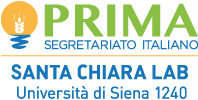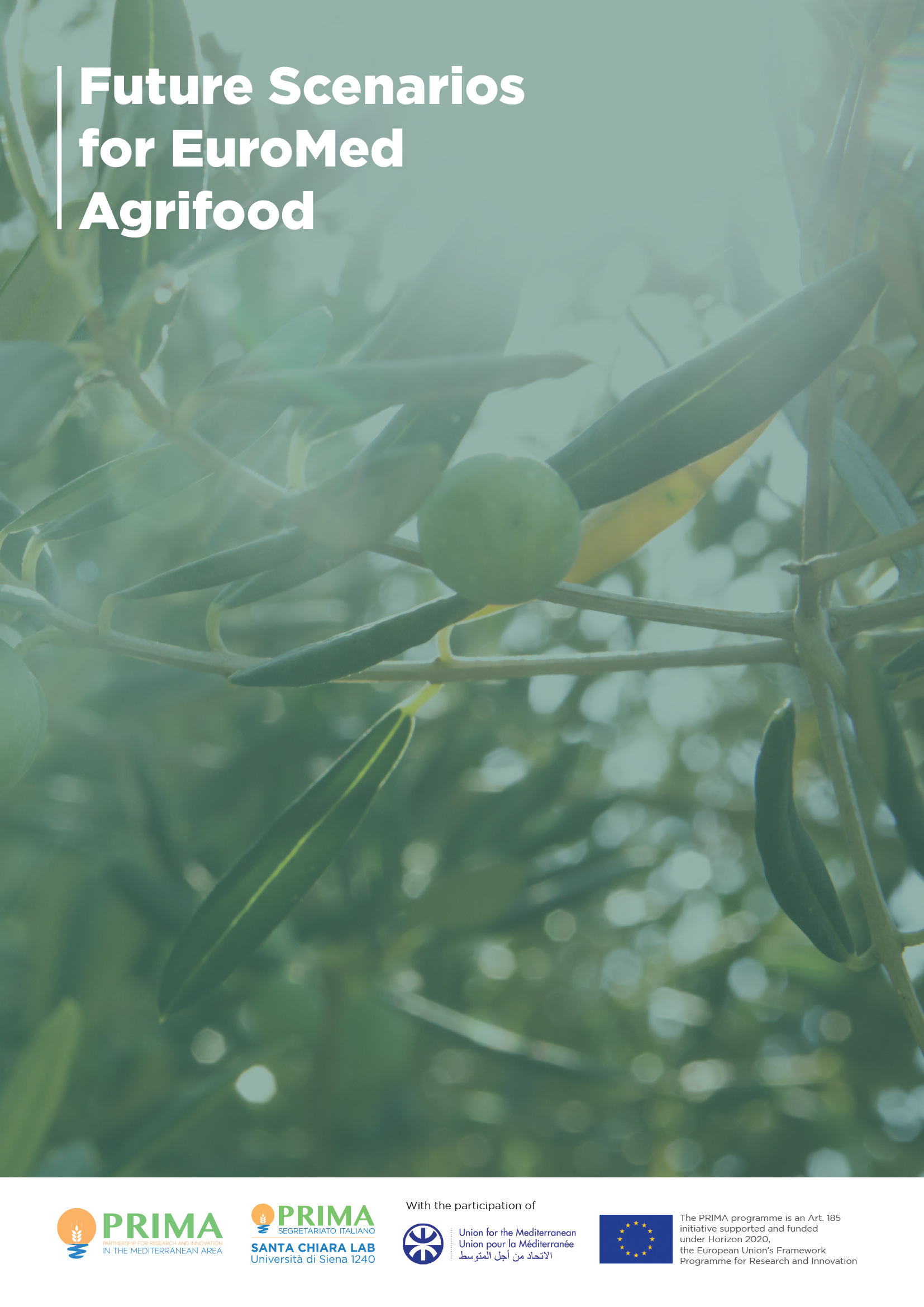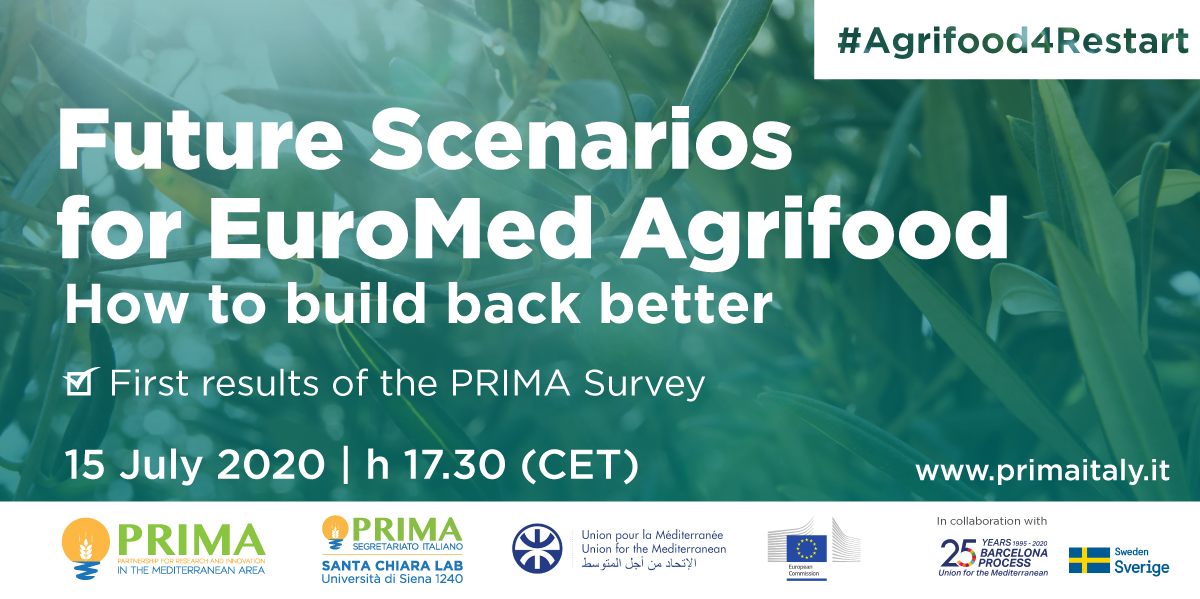
Download the report
Watch the video recording of debate
The online debate on Future Scenarios for the EuroMED Agrifood is promoted by the PRIMA Foundation and Italian Secretariat of PRIMA, in collaboration with Union for the Mediterranean.
The panel will be held on July 15 at 17.30 (CET), and it will discuss the main trends and issues in the agrifood, concluding the survey on Future Scenarios for EuroMed Agrifood, developed in the frame of PRIMA.
Please Save this Date and Join us in the debate, which will gather together speakers from major institutions and initiatives collaborating with PRIMA.
Agenda | Speakers | Report | Notes | Comments | Press | Video gallery
Agenda
17.30 Welcome
-
- Mr. Angelo Riccaboni – Chair PRIMA Foundation
- Mr. Nasser Kamel – Union for the Mediterranean Secretary General
17.40 Introduction to the Survey
-
- Mr. Omar Amawi – Deputy Director PRIMA Foundation
17.45 Debate
-
- Mr. Hans-Jörg Lutzeyer – European Commission
- Mr. Jamie Morrison – FAO
- Ms. Marta Guadalupe Rivera Ferre – FACCE JPI
- Mr. Ayman F. Abou Hadid – Ain Shams University, Faculty of Agriculture
- Ms. Arianna Giuliodori – World Farmers Organization
- Mr. Andy Zynga – EIT Food
Moderator Mr. Octavi Quintana – Director PRIMA Foundation
18.45 Conclusion
-
- Mr. Mohamed El-Shinawi – Co-Chair PRIMA Foundation
- Mr. Isidro González – Union for the Mediterranean Deputy Secretary General
Speakers
Angelo Riccaboni
PRIMA Foundation
Chair
More
Angelo Riccaboni is Full Professor of “Management Control Systems” at the Richard Goodwin School of Economics and Management of the University of Siena. Former Rector of the University of Siena from 2010 to 2016, he is a member of the Leadership Council of the United Nations’ Sustainable Development Solutions Network and Chair of the Regional Centre of the SDSN for the Mediterranean since 2012. Since 2017, he is Chair of PRIMA Foundation, an agency located in Barcelona in charge to implement a 10-year research and innovation Initiative on food systems and water resources, with a budget of 500 million euros funded by the European Commission and 19 Euro-Mediterranean Countries. He chaired the General Assembly of the PRIMA Consortium, made up of representatives of Euro-Mediterranean governments, in charge to prepare the PRIMA Programme (2013-2017). His research focuses on Governance and Control issues and the role of organisations and universities to promote the implementation of United Nations’ Agenda 2030. He is currently member of the Sustainability Board of Edison Italia (since 2017) and Member of the Advisory Board of Carrefour Italia (since 2018). He was a member of Board of Auditors of Bank of Italy (2016 –2017) and Member of the Board of Directors of MPS Bank (since 2017-2020). He has been recently invited to join the Advisory Board of the World Farmers Organization.

Nasser Kamel
Union for the Mediterranean
Secretary General
More
A career diplomat for the Egyptian government, Nasser Kamel held the position of Ambassador of Egypt to the United Kingdom from 2014 to 2018. He was also Ambassador to France in the period 2006-2012, during which he took part in the drafting of the Joint Declaration of the 2008 Paris Summit that marked the launch of the Union for the Mediterranean. Furthermore, between 2012 and 2014, he was Assistant Minister for Arab and Middle Eastern Affairs. From 2004 to 2006, he was the Director of Egypt’s Public Information Service. Prior to this position he served in various embassies, including Washington (1984-1988), Lisbon (1990-1994), Tunis (1994-1998), Brussels (1999-2001) and Paris (2001-2004).
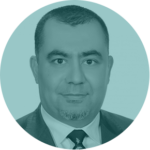
Omar Amawi
PRIMA Foundation
Deputy Director
More
Omar Amawi is the deputy director of PRIMA foundation, and has been engaged in PRIMA since the very early stages of the initiative. Omar represented Jordan in the general assembly and contributed actively to the drafting of the Strategic Research and Innovation Agenda of the program. He worked at the Higher Council for Science and Technology in Jordan for more than ten years as the director of policies and scientific projects AND international cooperation departments. Omar has a water resources management and agricultural engineering background, in addition to a vast experience in STI polices and strategies, scientific research funding, project management, and served on many boards, consortia and committees internationally and locally.
Hans-Jörge Lutzeyer
European Commission
Senior policy officer at DG Research and Innovation, in the Bioeconomy and Food Systems unit (FOOD 2030)
More
Dr. Hans-Joerg Lutzeyer, is senior policy officer at DG Research and Innovation, in the Bioeconomy and Food Systems unit (FOOD 2030). He is in charge of food systems research and innovation programming in the EU-African Union r&i partnership on food and nutrition security and sustainable agriculture (FNSSA) and co-chairing the EU-AU FNSSA working group. He is also executive secretary of the Standing Committee on Agricultural Research and contact for the Horizon Europe candidate partnership on safe and sustainable food systems. Before joining the European Commission in 1998, he worked for GIZ in Morocco, Brazil and Kenya and later for the German Research Ministry at the International Offices at DLR and ATSAF. He did the field studies for his agronomy PhD in West Africa (Benin Republic) at IITA Cotonou. Director and Strategic Programme Leader More
Dr. Jamie Morrison is Strategic Programme Leader, Food Systems Programme at the Food and Agriculture Organization. He has more than 25 years of experience in the provision of research, capacity development and technical assistance in relation to the impact of trade and economic policy reform on food security during processes of structural transformation. Scientific Advisory Board (SAB) More
Dr. Rivera-Ferre is the Chair on Agroecology and Food Systems and Director at the University of Vic – Central University of Catalonia. Her research focuses on the interactions between agriculture, food, society and the environment, with emphasis on adaptation to climate change and food security. She has particular interest in alternative agri-food systems and more recently, in the analysis of gender and commons theories as to be adopted in agri-food research. She has led projects analysing the food system from the perspective of food sovereignty, studying the existing relationship among production, trade, and the impacts in the rural population, looking at quantitative and qualitative indicators to measure the level of food security at different spatial scales. Professor, Arid Lands Agricultural studies and Research Institute More
Full professor and head of Horticulture Department, then Emeritus Professor at Ain Shams University, throughout his academic career, Professor Abou-Hadid has been seconded to several other National Duties including being appointed as Minister of Agriculture in four Cabinets. He acted as President of the Agricultural Research Center, chairman of the Egyptian Union of Producers and Exporters of Horticultural Crops, and Executive President of the Egyptian Environmental Affair Agency. He also served Rapporteur of Egyptian Agricultural Research and Development Council 2007-2011, Rapporteur and Member of Higher Committee for Climate Change in Agricultural sector since 2007, Chairman of Executive Committee of Climate Change in the Agricultural Sector since 2007. On the international level, he was elected as the chairman of the commission protected cultivation of the International Society for Horticulture Sciences (ISHS) for two terms from 1998 to 2006 and granted several Academic Honors, Grans and Awards including FAO Silver Medal twice in occasion of World Food Day in September 2007 and in 1994. Secretary General More
Ms. Arianna Giuliodori was appointed Secretary General of the World Farmers’ Organisation, WFO, in December 2017. After her degree in Communications Sciences, Ms. Giuliodori got a Master in Economics and Rural Development at Siena University in Italy. Farmers and Agriculture have always been part of her working life: she spent 10 years serving at the Italian farmers’ organisation Coldiretti, first in Rome and then in Brussels, acting as Economic Officer, Secretary General of Young Farmers, Head of the President’s Technical Secretariat and finally as Senior Policy Advisor at the European representation. Four years’ experience in an American multinational research and consulting company in Paris and an executive MBA at Sorbonne University complete her profile, giving her a strong business-oriented approach. In her present position as WFO Secretary General, she has been strongly promoting a solid governance of the Association and a wide set of international partnerships to ensure that the farmers can fully play their fundamental role in the sustainability challenge. CEO More
Before joining EIT Food, Andy built and turned around several businesses in Europe and the USA, and most recently engineered a Other stations in his career include 6 years at KPMG Consulting, where he built an international telecommunication strategy practice, and 5 years at Vanco plc, where as CEO North America and Central Europe he was part of the Executive team that took the business public on the London Stock Exchange. Andy joined EIT Food as CEO in November 2018. Andy holds a Master’s degree that combines Business Administration and Mechanical Engineering from the Technical University of Berlin, and he earned a Doctorate’s Degree with a thesis on (Open) Innovation Management from RWTH Aachen. Deputy Secretary General in charge of Water, Environment and Blue Economy More
Isidro González Afonso is a Spanish career diplomat who has served the Spanish Ministry of Foreign Affairs, European Union and Cooperation for the past eighteen years, holding positions as Counsellor and Senior Adviser in several Foreign Affairs Minister´s Cabinets in Madrid, and, lately, as Counsellor at the Embassy of Spain in Rabat. He has also been a member of the Spanish OSCE Chairmanship Team in 2007 at the Permanent Mission of Spain to the Organization for Security and Cooperation in Europe in Vienna; Deputy Head of Mission at the Embassy of Spain in Nicosia; and Deputy Consul General at the Consulate General of Spain in Jerusalem. Isidro González Afonso has a wide experience in the Mediterranean region, with a special focus on regional integration and negotiations for conflict management and resolution. Co-Chair More
Mohamed El-Sayed El-Shinawi M.B.B.CH., M.Sc., Ph.D., M.D, FACS is a Professor in the Department of General Surgery-Faculty of Medicine -Ain Shams University, Cairo Egypt , Advisor to the Minister of Higher Education and Scientific Research, Adjunct Professor in the Department of Emergency Medicine , Maryland University , Baltimore, USA, Co-Chair of the Partnership for Research and Innovation in the Mediterranean Area Initiative “PRIMA Foundation ,Barcelona, Spain”, Board member of the National Training Institute, Member of the UFM Bureau for Research and Innovation, Fellow of the American College of Surgeons and Consultant of General Surgery in several hospitals in Egypt and Saudi Arabia. Also, he is the Regional Lead Trainer of the Sequential Trauma Educational Programme “STEPs course “ conducted in Egypt and Sudan in collaboration with Maryland University, USA and President of Ain Shams Medical Student Research Association. While pursuing in breast surgery and breast cancer research, as well as in trauma and emergency care, Dr. Shinawi is responsible about all International relations and agreements in the Ministry of Higher Education and Scientific Research and had shared in many activates in the ministry including and limited to supervising the RDI program, Egypt-EU partnership Unit, Board Member of Egypt-US higher committee in STI, finalizing many agreements between Egypt and worldwide countries. Director More
Medical Doctor, specialized in Intensive Medicine, MPH Univ Columbia. 
Jamie Morrison
FAO
He is the editor of several books including “Food security in Africa: Market and trade policy for staples foods in Eastern and Southern Africa”, “WTO rules for agriculture compatible with development”, “Articulating and mainstreaming agricultural trade policy and support measures” and “The evolving structure of global agricultural trade”.
Dr. Morrison has a Ph.D. in Agricultural Economics from the University of London, an MSc. in Agricultural Economics from Wye College, University of London and a BSc. in Agricultural Science from Massey University, New Zealand. Prior to joining FAO in 2004, he was Senior Lecturer in Agricultural Economics at Imperial College London.
Marta Guadalupe Rivera Ferre
JPI FACCE
Ayman F. Abou-Hadid
Ain Shams University
Arianna Giuliodori
World Farmers Organization
Andy Zynga
EIT Food
successful exit for Open Innovation Service Leader NineSigma, which he ran for 10 years and sold in 09/2017. The majority of
NineSigma’s clients are from the Agri-Food Industry.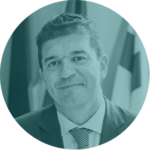
Isidro Gonzáles
Union for the Mediterranean
Mohamed El-Shinawi
PRIMA Foundation
Octavi Quintana
PRIMA Foundation
Director of Málaga Hospital. Deputy Director of INSALUD. President of the European Council Bioethics Committee Director.
Vice-president EC Ethics European Group. Director of International Affairs, Spanish Health Ministry.
Coordinator humanitarian aid in Rwanda, Burundi, Bosnia, Kosovo.
Director Scientific divulgation programs in TVE2. Director of Scientific Research in the EC in Health, Energy, European Research.
Director of PRIMA Foundation
Report
Download the report
⬆️
Notes
-
-
Note from Begona Perez Villareal – EIT Food
-
Note from Representative of Egypt in PRIMA Board of Trustees
-
Note from Representative of France in PRIMA Board of Trustees
-
Note from Representative of Lebanon in PRIMA Board of Trustees
-
Note from Representative of Morocco in PRIMA Board of Trustees
-
Note from Sara Roversi – Founder, Future Food Institute
-
Note from Sonia Massari – Director at Gustolab International Food Systems and Sustainability
-
Note Parliamentary Assembly of the Mediterranean
-
Note from Diego Intrigliolo – Co-Chair PRIMA Scientific Advisory Committee
-
Comments
-
-
-
- Many answers are given by taking into account mid-term scenarios (2-3 years). Of course, short-term views are much affected by Covid-19, but I am confident that once we will back to the normality (thanks to appropriate risk management) the pre-Covid priorities will become again important, still keeping in mind actions which are necessary to mitigate emergency.
- Agreements between agrifood producers and retailers is needed, to cooperate together
- No direct mentioning of primary production, notwithstanding its pivotal importance, increasingly ignored by the EU-funded programs. On a similar line it would have been useful to include some questions related to technological aspects in different areas, such as agronomy and plant breeding, key for primary production and their impacts on climate change and the environmental footprint of agriculture. I find all this quite disappointing , particularly in view of the increasingly negative impact of climate change on primary production. Only one of the questions indirectly evoked primary production in terms of self-sufficiency of single countries. Italy imports a huge amount of cereals, particularly wheat the main source our daily caloric intake and also source of proteins in our diet. Sorry for this long comment and thank you for the possibility to allow the possibility to comment.
- The impact of It and new technology to support smart pharming like Iot, drones and blockchain along the supply chain would help the sector to be better integrated vertically. I don’t believe however in major disruption of the traditional market, like street markets strongly based on quality and local producers, the role of e-commerce in this sector is limited.
- From emergency scenarios to new food scenarios: we need to introduce more “innovative research methods” ( design, empathy-related research methods, ect.)
- In relation to the agrifood post COVID scenario (2020-2021), among the policy options to be considered there should necessarily be included initiatives for incentivating and facilitating production, marketing, availability and affordability of healthy and sustainable foods
- There is still a lot to do to educate the consumer…..Healthy? Natural? Sustainable? Organic? Green? communication is not helping to explain the complexity and the values of food…
- Since the emergence is still on, it is really difficult to have a reliable consciousness of these aspects; The Covid-19 emergency highlighted that meeting the demand for constant food supply under pandemic conditions is a challenging factor, whose importance toward population health maintenance ranks second to the availability of proper healthcare. In light of this, an even more difficult challenge for the post-Covid scenario is to promote innovative solutions that can improve the global and local efficiency of the entire agrifood production chain, while keeping high nutritional values and affordable retail prices.
- Small, medium and family farmers (in particular those that produce organically) could have more chances to revitalize and valorize their produces into market, making of their typical production an excellence and distributing door to door their food. The use of ITC platforms may help
- Agrifood value chains will need restructuring post covid-19, but this may not go toward better sustainability unless driven by wise policies.
- About consumers I think that this crisis is going to exacerbate the distance between the richest and poorest; so the food choices will be linked to that! The poorest consumers will choice on the base of the price, the richest on the base of sustainability, healthy foods and their traceability.
- 1) the agrifood sector is already strongly regulated;
- 2) the idea to strengthen the bond between products and terroirs could backfire, generating bottlenecks on the supply side. Better to promote certifications of products, transportation, and animal welfare;
- 3) the financial crisis could negatively affect consumers’ elasticity to price.
- In some cases, the situation was the same also before the COVID (es. above all for that concerns consumers). Of course well planned policies addressed to promote and valorize the national food chain could help the agricultural sector, together with policies applied to guarantee stable food prices. In this sense, agreements among the stakeholders involved in the food chain should help to face together the financial and logistics risks.
- At lot of post-covid19 will be determined by multi-Nationals and supermarkets that have a stranglehold on the food supply. The small producers will lose out unless it is possible to develop smart/alternative retail means so local produce can be competitive and easily sold and accessible to the population. I think that for ICT innovations to really work this needs to be developed directly with SMEs in mind. Consumers may be forced to the cheapest alternatives if they have no money and other ethical considerations become a lower priority. The risk is that multi-national and large supermarkets will exploit this opportunity to increase their control on the food supply chain.
- Environmental concern will be part of people’s conscience and will increase in the face of the current pandemic. It will be one of the positive parts of this catastrophe.
- The Covid pandemic will accelerate major changes in the agrifood system as we know it, that would probably end up happening later in time. The main drawback in my opinion relates to financial difficulties both for consumers and small-scale producers and the sustainability issues that will probably be left let in a second plan of priorities, as well as the possibility healthy diets adoption (like MD) – major strategic policies are needed to overcame these negative impacts of Covid in the sector.
- Please give attention to people that did investments before Covid, that could be very affected with economy and hard risks of bankruptcy, if the economy doesn’t recover quickly.
The post COVID scenario is a reality, which will be developed differently in different areas of our planet and in different economies, although the global economy usually flattens the regional policies.
In the long term COVID-19 will have a minor impact on the agrifood chain, in contrast to other economic sectors such as tourism, which will be negatively affected for a longer period.
Overall, the agrifood sector as a total is less vulnerable to crises like the one caused by coronavirus compared to other economic sectors. However, the degree of adaptability to new conditions will determine survival of companies in agrifood sector as the new challenges will partially change the competition conditions.
The post-COVID19 will mark a new era in agrifood production involving a number of adjacements and policies to safe guard public health and food sufficiency. A transformation path that new ICT technologies and tools would be key drivers in food production and sustainability.
Initiatives should be introduced to protect smallholders and support short, regional supply chains. Highlighting the advantages of fast on-shelf delivery with less mediators, will not only enhance food security characteristics, but will also increase smallholders earnings, rendering small-scale high quality supply chains sustainable. - It is essential to place the production of local agrifood goods at the heart of the future agriculture practices, especially in the South and East of the Mediterranean Area.
- COVID-19 will bring about changes to the behavior of each sector of the economy, including Food-farming systems. Locally in Malta the Food-farming sector has not been impacted in terms of consumer demand (this remained constant) but it has been impacted from the lack of mobilization of the workforce in the agricultural sector, some of which have been under lockdown conditions for some weeks. The full impact of the lack of production will be known in the weeks / months. Food security will need to top the agenda in the coming months to ensure that the supply meets the demand of agriculture production. A stronger focus on Governance for resilience from an Island(s) perspective within the Mediterranean region as a result of the different climatic conditions in the region can surely enhance the resilience of all member states. This would include over-arching the country’s ability to design ways to farm with resources (and conditions) the country has, as well as including new technologies that enable farmers to: harvest more water efficiently using solar powered technology and create soil from waste materials.
- Consumers will definitely increase the internet food shopping; also the consumers will raise their awareness of importance of domestically and locally produced food.
Some sales channels will change. Consumers, who buy food during the crisis directly from the farmers, instead from supermarkets, will keep this habit also in the future. - Markets will pick up faster than predicted; there’ll be major sufferings to certain market segments such as tourism, which will take longer time to recoup
- Initiatives should be introduce to protect smallholders and support short, regional supply chains. Highlighting the advantages of fast on-shelf delivery with less mediators, will not only enhance food security characteristics, but will also increase smallholders earnings, rendering small-scale high quality supply chains sustainable.
- Many of the obstacles will be overcome if there is investments for sustainability of production systems by the governments. Research can be advance in solution with local resources!
- Consumers will prefer products from countries / regions with lower incidence of Covid-19 ; Consumers will prefer vegetables that are cooked before consumption
- The situation with Covid-19 had been exaggerated beyond facts and many people jump into conclusions without any objective data regarding the agrifood sector which has shown remarkable resilience over the years. The agrifood sector with not be greatly affected by the covid-19 pandemic.
- Although the COVID19 pandemic is a major disruptor of the agrifood production and economy, still the major challenges we are facing and will face in the future are present. Emphasis should be given to create more resilient agrifood systems in conjunction with more sustainable and anthropo-centric social and economic systems.
- People will try to find the balance between the low price due to the economic crisis but yet as seen in Greece, fresh oranges and generally products that boost the immune system naturally, were outsold.
- We will face new challenges that some of them are difficult to predict and we have to ready to react accordingly in the situation. The challenges can be from the supply of first materials necessary for the agricultural production e.g. seeds, fertilizers, pesticides and other supplies, machinery, and also workers who can work on the agrifood business. In addition, trading will be affected such selling our products and buying what we need
- COVID-19 will have only a minor impact on the agrifood chain in the long term, in contrast to other economic sectors such as tourism, which will be negatively affected for a longer period. Overall, the agrifood sector as a total is less vulnerable to crises like the one caused by coronavirus compared to other economic sectors. However, the degree of adaptability to new conditions will determine survival of companies in agrifood sector as the new challenges will partially change the competition conditions.
- Τhe scenario post COVID is a reality, which will be developed differently in different areas of our planet and in different economies, although the global economy usually flattens the regional policies. The Agenda 2030 will includes future scenarios of pandemic incidents, because the major organizations (World Health Organization, FAO etc) are informed that we are about to enter the Era of great pandemics, food crisis and long-term economic crisis. Worldwide but also regional environmental policies will enforce the funding for the food safe and evaluation and new technologies will developed on the direction of the food, public health and surviving. In combination to the climate change the Mediterranean region should develop specific policies for the public health and food production (in seas and land) because this region will be the less affected from pollution and extreme weather conditions. Some decades before the scientific doctrine was (energy, health, food), but in our times the scientific doctrine becomes (food, food, food).
-
-
Press
Video gallery
Angelo Riccaboni | Chair PRIMA Foundation
Enrico Granara | Coordinator Euro-Med Ministry of Foreign Affairs and International Cooperation
Amb. Sergio Piazzi | Parliamentary Assembly of the Mediterranean
Begoña Pérez-Villarreal | EIT Food
Peppi Gauci | Permaculture Research Foundation and Bahrija Oasis Malta
Sonia Massari | Università Roma Tre
Sara Roversi | Future Food Institute

